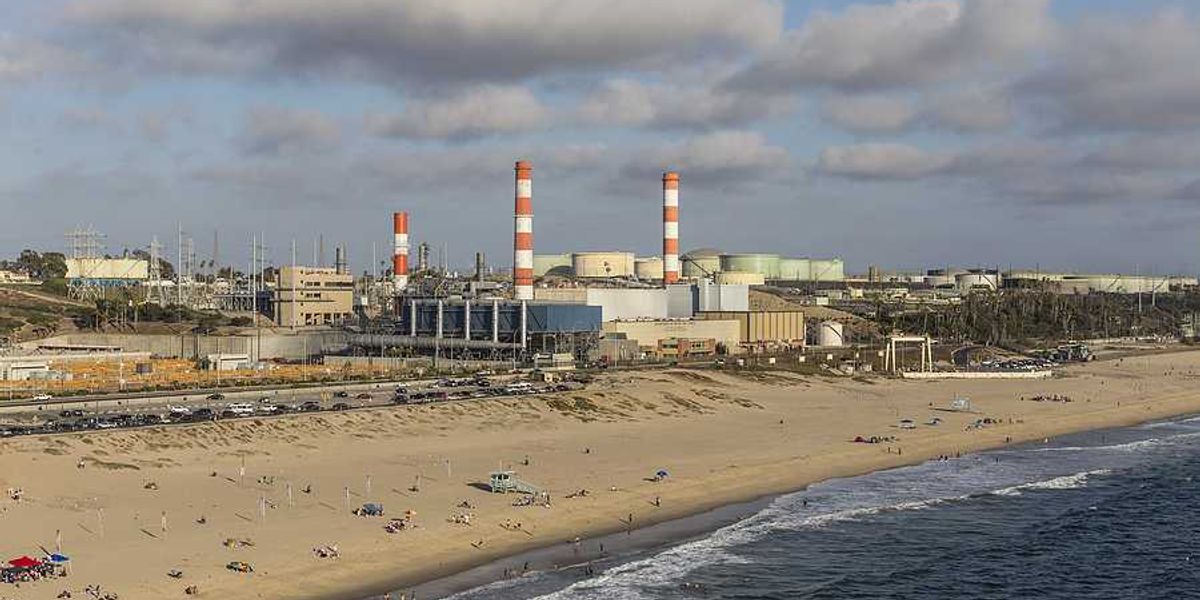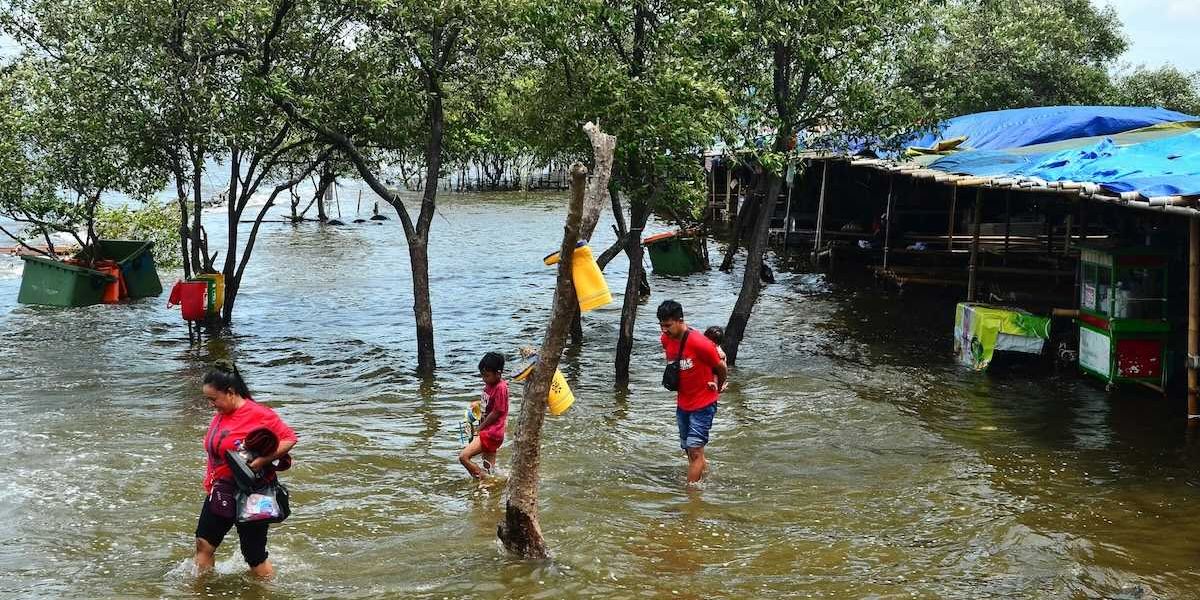oil and gas
Texas debates over new oil and gas waste rule heat up
Texas is considering its first major revision of oil and gas waste management rules in 40 years, but environmentalists and industry leaders disagree over the new regulations.
In short:
- Texas' revised rule aims to improve waste disposal from oil and gas drilling, including the handling of toxic byproducts like produced water and drilling mud.
- Environmental groups argue the rule doesn't do enough to protect groundwater, while the industry says stricter measures could be too expensive for smaller companies.
- The public has until September 30 to comment on the proposal, with hearings scheduled this week.
Key quote:
“This is a massive overhaul of extremely important groundwater protection rules.”
— Virginia Palacios, executive director of Commission Shift
Why this matters:
Texas generates billions of gallons of oilfield waste annually, some of which poses a risk to groundwater. Updated regulations could strengthen protections or lead to more conflicts between environmentalists and the energy industry.
Related:
Shell’s foundation funded groups opposing climate action and LGBTQ+ rights
Shell USA's foundation gave more than $500,000 to right-wing organizations that promote climate denial, anti-abortion and anti-LGBTQ+ agendas, including several involved in Project 2025, which aims to weaken federal agencies like the U.S. Environmental Protection Agency.
In short:
- Shell’s foundation donated to at least 21 conservative groups opposing climate action and promoting right-wing agendas.
- Donations included significant funds to organizations linked to Project 2025, advocating for drastic changes to the U.S. government.
- The foundation claims it does not endorse any organizations and that donations are employee-driven.
Key quote:
“They’re all certainly working in the rightwing policy and propaganda space.”
— Peter Montgomery, research director at People for the American Way
Why this matters:
These donations align Shell with groups that could undermine climate policy, despite public commitments to sustainability. Such actions highlight the complex relationships between corporate philanthropy and political influence.
Related EHN coverage:
Oil and gas firms hide climate impacts in investments
A new study shows that oil and gas companies often fail to report emissions from their investments, obscuring the true climate impact of their operations.
In short:
- Clarity AI found that accounting for investment-related emissions would increase the carbon footprint of the top 20 oil and gas companies by 24%.
- The study highlights that 90% of the world's largest oil companies do not report emissions from joint ventures, complicating accurate climate risk assessment for investors.
- Scope 3 emissions, which include emissions from a company's entire value chain, are 26 times greater than direct emissions, according to Boston Consulting Group.
Key quote:
"I'm a strong believer that traditionally, we have relied way too much on the data that companies are reporting."
— Patricia Pina, Clarity AI
Why this matters:
Accurate emissions reporting is crucial for investors to assess climate risks and make informed decisions. Without transparency, fossil fuel companies may not face enough pressure to transition to sustainable practices, delaying necessary action to combat climate change.
New Mexico considers reuse of oil and gas wastewater amid safety concerns
New Mexico regulators propose reusing treated oil and gas wastewater in industrial processes but prohibit its discharge into rivers due to safety concerns.
In short:
- New Mexico generates billions of gallons of toxic wastewater annually from oil and gas drilling, currently injected underground or transported to Texas for disposal.
- Proposed rules allow treated wastewater reuse in industry but prohibit river discharges, citing insufficient safety data.
- Environmental advocates worry about risks, while industry groups argue the rules are too restrictive compared to other states.
Key quote:
“The scientific research that would allow us to protectively permit treated produced water discharge simply does not exist.”
— Andrew Knight, NMED assistant general counsel
Why this matters:
New Mexico faces severe water shortages and must explore alternatives to traditional water sources. Safe reuse of treated wastewater could provide a new water supply but poses potential environmental and public health risks.
Texas struggles with backlog of unplugged wells despite aggressive plugging program
Texas, known for its vast oil reserves and long history of drilling, is now facing a less glamorous legacy: the highest number of unplugged wells in the United States.
In short:
- Texas has 476,790 documented unplugged wells, including 8,580 orphaned wells.
- The Bipartisan Infrastructure Law provides $4.7 billion for well plugging, with Texas receiving $25 million initially.
- Despite plugging over 1,500 wells annually, Texas's orphan well list remains lengthy due to ongoing discoveries and undocumented wells.
Key quote:
“Right now the Railroad Commission estimates that we have almost 8,000 orphan wells that need to be plugged in the state of Texas.”
— Rep. Brooks Landgraf, an oil and gas attorney who represents the city of Odessa and chairs the Texas House Environmental Regulation Committee
Why this matters:
Unplugged wells, sometimes referred to as orphan wells, are those left behind after their productive life has ended. Without proper sealing, these wells can become conduits for toxic substances like methane and brine to contaminate local ecosystems. The environmental impact is significant, with risks ranging from groundwater pollution to air quality degradation. Methane, a potent greenhouse gas, can escape from these wells, exacerbating climate change.
Major oil companies' climate plans fall short, report reveals
Despite bold climate promises, a new report indicates that major oil companies' plans fail to meet the necessary standards to limit global warming to 1.5C.
In short:
- None of the eight largest US and European oil and gas companies' climate plans align with the 1.5C warming limit.
- All companies were found to have plans that are "grossly insufficient" or "insufficient" in nearly all of the 10 criteria assessed.
- US companies, including Chevron and ExxonMobil, were highlighted as particularly inadequate in their climate efforts.
Key quote:
"There is no evidence that big oil and gas companies are acting seriously to be part of the energy transition."
— David Tong, global industry campaign manager at Oil Change International.
Why this matters:
Failure to meet climate targets by major oil companies could lead to more than 2.4C of global temperature rise, resulting in severe climate consequences. These companies' current plans could consume a significant portion of the world's remaining carbon budget, worsening the climate crisis.
Feeling anxious about climate change? Experts say you're not alone.
Activists meet with Canadian official to discuss concerns about Line 5 pipeline
Activists have called on a Canadian consular official to close the Line 5 oil pipeline, citing environmental and Indigenous rights concerns.
In short:
- An international coalition presented a letter to a Canadian consular official, urging the revocation of a treaty that supports the operation of Line 5.
- The pipeline, which traverses tribal lands, has been deemed trespassing by a court, with orders for partial closure by 2026.
- Enbridge disputes these claims, citing a 1992 easement and arguing against treaty violations.
Key quote:
“It’s hypocritical and irrelevant for the Canadian government to invoke the 1977 treaty while ignoring the long standing treaties they have with First Nations.”
— Andrea Pierce, Little Traverse Bay Bands of Odawa Indians citizen
Why this matters:
Line 5, part of a network operated by Enbridge Inc., runs under the Straits of Mackinac, connecting Lake Huron and Lake Michigan. This location is pivotal for its natural beauty and as a vital freshwater resource. Critics argue that any potential oil spill could devastate these waters, which are important for local ecosystems and the millions who rely on them for drinking water.
The pipeline also crosses areas significant to local Indigenous communities, who have raised alarms about the infringement of their sovereign rights and the risks to their lands.









